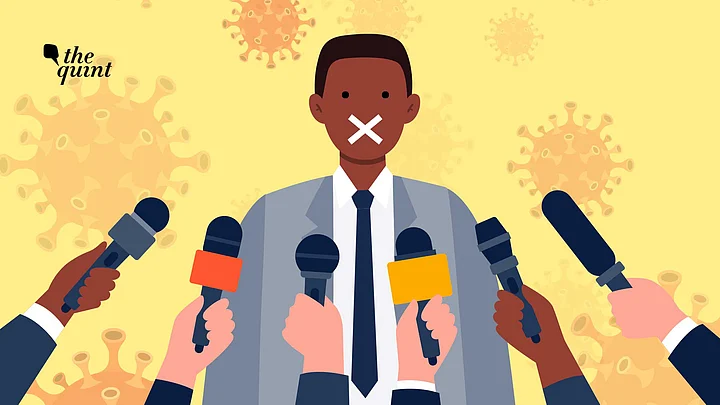Migrants are often burdened by a sense of guilt for those they have left behind. Especially when, as so often, it's the young that move and the old that stay. How can you stand with those you love from so far away? How can those duties of filial obligation be met from a distance?
For the 17 million Indians of the diaspora, the barely imaginable COVID emergency has intensified that pall of guilt a thousand-fold. At a moment of crisis and vulnerability you're not there - often have no way of getting there - no practical way of helping. The WhatsApp messages, the news of relatives and friends fighting for life and sometimes losing that struggle, add to a gut-wrenching sense of panic and anxiety.
It's nothing like as harrowing as seeing a parent gasping for breath or taking a stricken relative round overburdened hospitals. But not being there - not present to hold a hand or to strain every sinew to secure help - makes that feeling of disempowerment, of failure, more intense.
Indian Diaspora Watching An Exceptional Crisis Unfold
"Watching the scenes of death and desperation on television is heartbreaking" says the London-based historian Shrabani Basu. She grew up in Delhi and has family and friends there. "Something inside me was dying as I watched the city on its knees. Two members of my extended family died after a terrifying search for oxygen and beds. Sitting thousands of miles away, there is an added feeling of helplessness."
Around the world, news websites and TV screens have given full throttle to the healthcare crisis in Delhi in particular, played out in the car parks of private hospitals and on the cremation grounds.
An old adage suggests that plagues and pandemics are great equalisers. Don't believe it! If this is how the Delhi middle class is suffering, you can be sure that the poor and the marginalised, those in rural areas and in towns and cities which have less prestige and political attention, are having it even worse.
But this is an exceptional crisis in that money, status, contacts, connections - while of course they still help - can't conjure up beds in hospitals already crammed beyond capacity or secure oxygen cylinders which simply aren't there. The unspoken diaspora contract, that those who go will enable those that stay to live at ease, has broken down. A few in the diaspora have pounded the internet to help get parents and relatives hospital beds or vital medicines; most have been reduced to perpetual worry and tears.
How Diaspora is Organising Aid for India
Adversity can also forge a profound sense of purpose. The diaspora has led the way in rallying to India's support and putting pressure on other governments to respond generously. Khalsa Aid International has been among those to send out supplies promptly, India entrepreneurs abroad have also been quick to act, and there's a myriad of other fund-raising endeavours.
Sonia Faleiro, writer and journalist, has launched Artists for India to raise money for Mission Oxygen. "I wanted to channel my shock, fear and grief into something constructive and I knew I could count on the Indian diaspora" she says. "It's an extremely devoted group of people who tend to respond quickly to appeals for help from home. It took one email and I'm not exaggerating when I say that I received a positive response within minutes."
"We now have more than seventy writers and artists on-board", Faleiro adds, "and many of them are diasporic Indians including Salman Rushdie, Kiran Desai, Nikita Lalwani and Alpa Shah." The idea is simple - donate at least £100 (about Rs 10,000) and you get a book signed by one of the authors involved.
Quest for Reliable Information on India’s COVID-19 Situation
Alongside the urge to do something to help, there's the quest for reliable information. The visual images are shattering, but there's also a need to understand why this second wave hit so suddenly, and why - more than a year into this global pandemic - the health sector was taken by surprise.
India is embattled - but it is not at war. There is no case for the censorship and news management sometimes seen in wartime.
Without news and information that people can believe in, fears intensify and rumours and conspiracy theories gain traction.
And in moments of crisis especially, those with power and responsibility need to be held to account - the principal purpose of a free media. Their actions, and lack of action, need to be reported, analysed and criticised. This scrutiny may be uncomfortable for those that govern us - but that's just too bad.
The Indian government's attempts to oblige social media platform to take down posts critical of the COVID response are alarming. Even more concerning is the public rebuke delivered by a senior Indian diplomat to The Australian newspaper for carrying 'a completely baseless, malicious and slanderous article' - in this case republished from The Times of London - with the 'sole objective of undermining the universally acclaimed approach taken by the Government of India against the deadly global pandemic'.
Thin-Skinned Intolerance About India’s International Reputation
The sensitivity to India's international reputation, and to the government's standing in the eyes of a diaspora who have often been cheerleaders for Narendra Modi, is understandable - but the thin-skinned intolerance which statements of this sort point to is not.
Sitting in London, it's desperately unsettling to see the cataclysm unfolding across much of India - but to be deprived of trustworthy news would be so much worse.
(Andrew Whitehead is a former BBC India correspondent. His mother-in-law lives in Lucknow. This is an opinion piece and the views expressed above are the author’s own.The Quint neither endorses nor is responsible for them.)
(At The Quint, we question everything. Play an active role in shaping our journalism by becoming a member today.)
